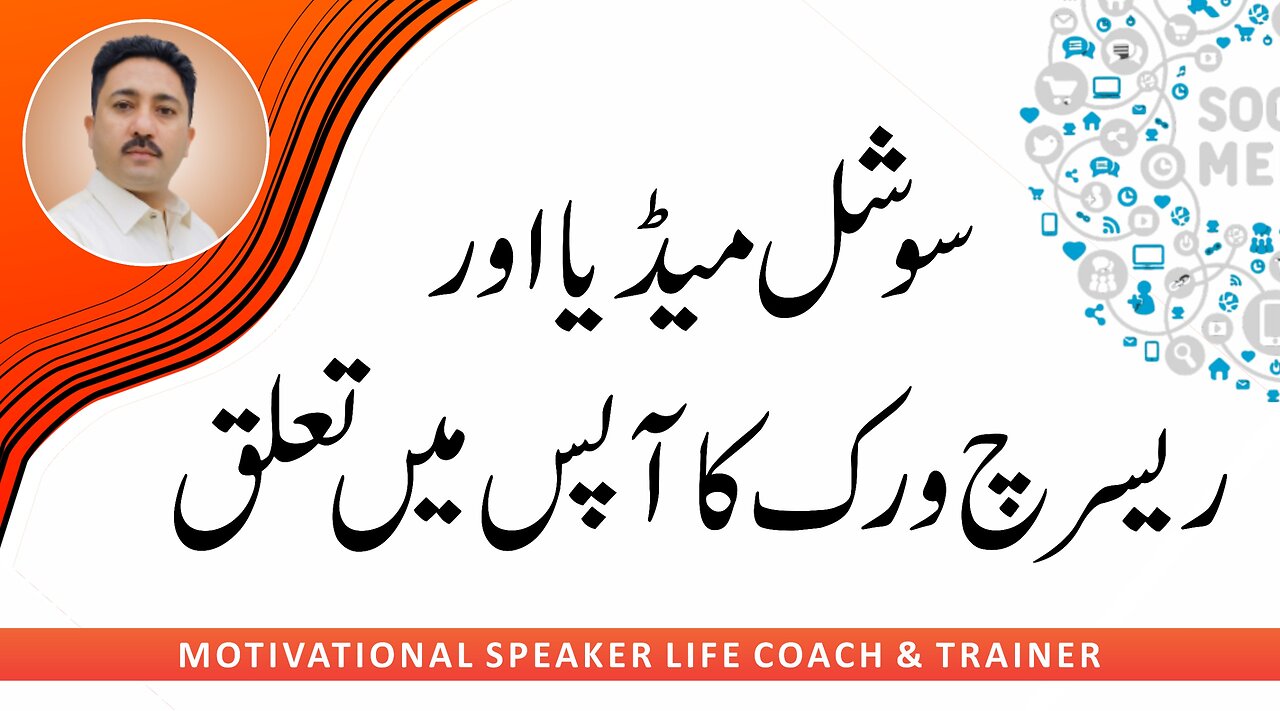Premium Only Content

Social Media and Research work
Social media and research work have a complex and multifaceted relationship. On one hand, social media can be a powerful tool for researchers, providing access to a vast amount of data, facilitating collaboration, and enabling the dissemination of research findings to a wider audience. On the other hand, the use of social media in research also raises concerns about privacy, ethics, and the potential for bias.
Here are some of the ways in which social media can be used in research work:
Data Collection
Social media listening: Researchers can use social media listening tools to monitor conversations on social media platforms and gather data on public opinion, trends, and emerging issues.
Surveys and questionnaires: Social media can be used to distribute surveys and questionnaires to a large and diverse audience, potentially reaching participants who would be difficult to reach through traditional methods.
Crowdsourcing: Researchers can leverage the collective intelligence of social media users to gather data, analyze information, and solve problems.
Collaboration
Online communities: Social media platforms can be used to create online communities where researchers can connect with colleagues, share ideas, and collaborate on projects.
Project management tools: Social media tools can be used to manage research projects, track progress, and share information with team members.
Dissemination of Research
Blogs and websites: Researchers can use social media to create blogs and websites to share their research findings with a wider audience.
Social media platforms: Researchers can use social media platforms to share their research findings with their followers and engage in discussions with other researchers and the public.
Ethical Considerations
Privacy: Researchers must be mindful of privacy concerns when collecting and analyzing data from social media platforms. They should obtain informed consent from participants and take steps to protect their privacy.
Bias: Researchers should be aware of the potential for bias in social media data and take steps to mitigate it.
Misinformation: Researchers should be careful to avoid spreading misinformation on social media and to critically evaluate the information they encounter.
Overall, social media can be a valuable tool for research work, but it is important to use it responsibly and ethically. By understanding the potential benefits and risks of social media, researchers can harness its power to advance knowledge and improve society.
-
 3:36:30
3:36:30
TonYGaMinG
4 hours ago🟢 ABI WITH FRIENDS | 🍩JOE DONUTS | 😶 🌫 VLADSGAMINGCARTEL |
11.8K4 -
 21:24
21:24
marcushouse
10 hours ago $0.06 earnedStarship Flight 10: Go or No? 🚀
14.3K12 -
 LIVE
LIVE
MrR4ger
16 hours agoSUNDAY FUNDAY w/ R4GER - VARIETY / DIABLO 4/ FOR HONOR / ETC?
92 watching -
 5:40
5:40
WhaddoYouMeme
3 days ago $0.19 earnedThey’re Calling This the End of Masculinity
18K18 -
 15:24
15:24
Tactical Advisor
19 hours agoBest 2011 of 2025 | Bul Armory Ultralight Pro
21.8K1 -
 27:31
27:31
True Crime | Unsolved Cases | Mysterious Stories
2 days ago $0.11 earnedThe Hong Kong Schoolgirl Mystery – 5 Mysterious Unsolved Cases (Part 8)
17.1K3 -
 7:19
7:19
China Uncensored
1 day agoChina is DONE in the South China Sea
14.4K32 -
 5:17:07
5:17:07
Joe Donuts Live
6 hours ago🟢 Loot Rats Unleashed: Arena Breakout Chaos! | Joe + Tony + Vlad
25.5K1 -
 30:37
30:37
Degenerate Plays
18 hours ago $0.01 earnedThis College Is Out Of Control - GTA Online : Part 9
8.92K -
 16:28
16:28
Mrgunsngear
3 days ago $0.50 earnedBeretta 92XI SAO Sabbia Review - A Few Surprises
10.5K6